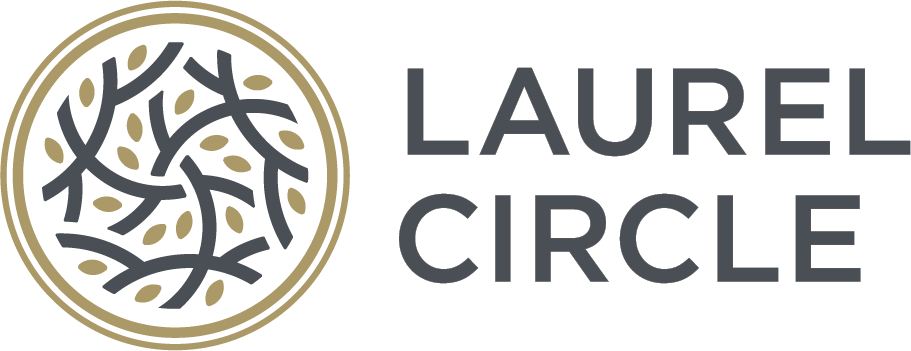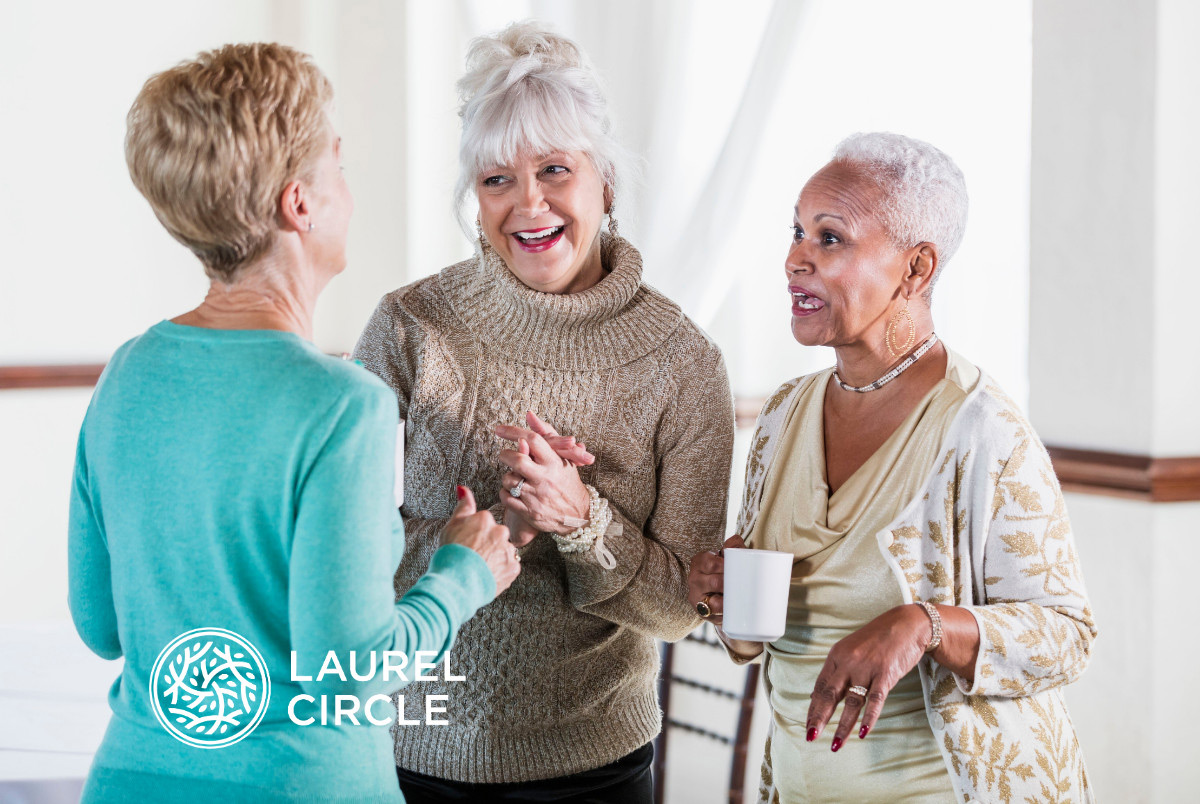When Adult children see changes in their parents at the Holidays

Warning signs of depression, illness, and cognitive decline in seniors
For many families, the holidays are a time to reconnect, often after months or more apart. This year will surely see some reunions that have been delayed by the pandemic.
Unfortunately, the holidays are also a time when some adult children notice worrisome changes in their parents after being separated for many months.
“Children visiting for the holidays often notice changes that their siblings who live in the area miss,” says Patricia Strupp, MSW, the Health and Wellness Navigator/Director—Residential Health Services at Laurel Circle, a lifeplan community in Bridgewater, N.J. “Because they don’t see the day-to-day progression of the changes, the differences in their parents from their last visit are much more apparent to them.”
Additionally, the visit might prompt local family and support systems to share their concerns with a loved one that lives out of the area.
What types of changes are causes for concern?
First, keep in mind that ‘change’ is the important part of every symptom. A dusty, cluttered home isn’t a symptom if that person has always kept a dusty, cluttered home.
Signs of Possible Depression, Illness, or Cognitive Decline
- Changes in housekeeping. Your parent is normally very neat, but now the house is disordered and dirty.
- Changes in mood. A normally cheerful person is easily irritated. A careful person becomes impulsive. A polite person becomes rude.
- Changes in behavior. A social person becomes withdrawn. A person who loves lots of hobbies loses interest in all of them.
- New difficulty in making plans. “Examples include: the kids come home for Thanksgiving dinner as usual and the parent only has half the ingredients in the pantry, or the parent loves to intricately plan a family vacation every year finds that they can no longer keep everything straight the way they used to,” says Strupp.
- New difficulty organizing: The mail is piling up more than usual or the calendar looks drastically different than it has in the past.
- Difficulty doing familiar tasks. “For instance, if your mother, the great cook, always makes her famous stuffing every year, but this year she’s having trouble with the recipe, that might be a cause for concern,” Strupp explains.
- Forgetting appointments and dates.
- Getting lost on the way to familiar places.
Possible Causes of Changes
If you notice changes in your parents over the holidays, it’s important that they see a doctor first for a full check-up.
Some changes may be related to purely physical issues.
“Hearing loss can be a major cause of social withdrawl and seemingly disordered thinking,” explains Strupp. “Visiting with friends can become very frustrating if you can’t hear what’s happening. Rather than feel lost, many seniors disengage. Others respond to what they incorrectly hear or think is the socially correct thing to say. To observers, these responses appear nonsensical, but are in fact logical. It’s just a matter of hearing.”
Likewise, an unusually messy home may not be the result of depression or cognitive impairment, but rather may simply mean that it has become difficult for a senior to keep up with chores physically.
Difficulty walking also causes changes. “In some cases, a withdrawl from friends and family is caused by an ambulatory issue,” says Strupp. “Seniors may not venture out too much because they feel unsteady on their feet and are afraid of falling.
Other changes may be related to inactivity, depression, and social isolation. “People need to be active socially, physically, and mentally in order to maintain their health and keep the gears going,” says Strupp. “We are social, active, thinking beings, and we decline and suffer when we aren’t able to connect, move, and engage.”
The changes may also be caused by illness or dementia. It’s important that the senior be assessed by a physician who can help find any underlying causes.
Benefits of a Senior Living Community
Living in an LCS (Life Care Services) lifeplan community such as Laurel Circle has several benefits for seniors who may feel disconnected, lonely, concerned about falling, or are unable to keep up with cooking and housekeeping. It also provides their adult children with the peace of mind knowing that their parents’ needs are taken care of in a supportive, warm environment.
- 1. Low-maintenance living. Housekeeping is taken care of and meals are served in several onsite dining venues.
- 2. No stairs! Laurel Circle has four floors with elevators.
- 3. Transportation services.
- 4. A welcoming community of neighbors who look out for one another.
- 5. Independent living apartments, and also personal care, assisted living, skilled nursing, and memory care neighborhoods should the need for more care arise.
- 6. The Eight Dimensions of Wellness Program, which focuses on all aspects of personal wellness, including social, physical, intellectual, emotional, vocational, spiritual, environmental, and health services.
“The Eight Dimensions of Wellness Program at Laurel Circle is central to the independent living lifestyle here, and also in our care neighborhoods, too,” says Strupp. “It includes health services and fitness classes of course, but also tons of clubs, parties, meetings, events, lectures, classes, and performances for people with a variety of tastes and hobbies — all of which give residents ample opportunity to stay physically, socially, and mentally active.”
And should a senior need memory care, Laurel Circle’s neighborhood keeps its residents safe while providing specialized activities, events, and classes from the Eight Dimensions of Wellness program. “People with dementia have a greater opportunity to improve the quality of their lives considerably when they are able to exercise, socialize, and have opportunities to connect and engage with the world around them, just like everyone else,” says Strupp.





